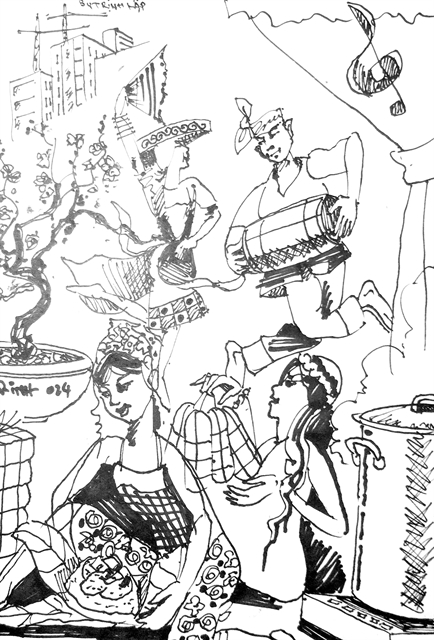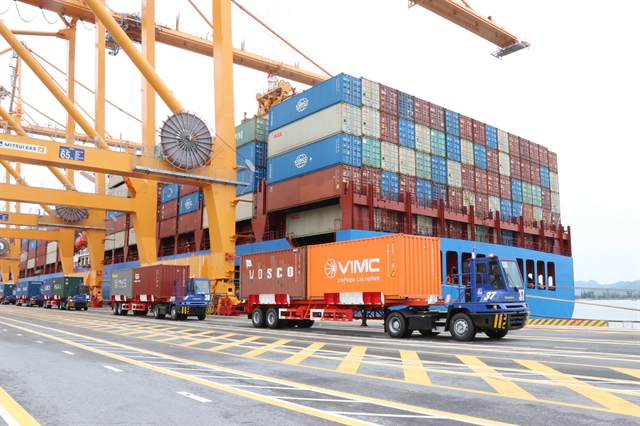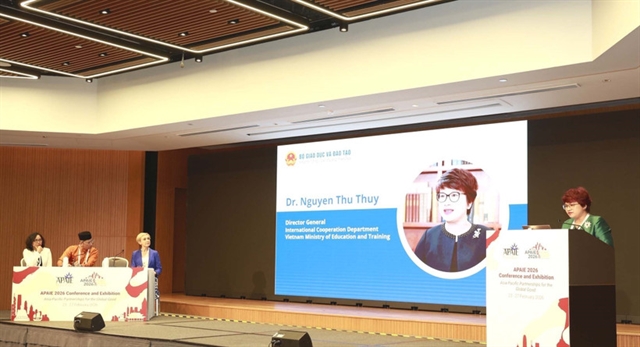 Talk Around Town
Talk Around Town

 |
| Illustration by Trịnh Lập |
by Nguyễn Mỹ Hà
Leading up to Tết, many people living in new urban complexes took to social media to post about their festive celebrations.
"Hey, look, we wrapped and boiled our bánh chưng together," or "Today we put up the Nêu tree, prayed to the Kitchen God and released koi fish into a pond in the compound of our apartment building."
These are family activities for sending off the old lunar year and welcoming the new one. But in an apartment building, they pray for a common Kitchen God, a common ground that binds them together and brings them closer, no matter where they came from before they moved in.
Having observed this trend for quite a few years now, we have seen the positive side of development and apartment buildings springing up in the cities have brought people together in clean, safe and well-maintained circumstances.
As the popular saying goes, "You can take the girl out of the country, but you cannot take the country out of the girl." Or as the Vietnamese saying states, "Giang sơn dễ đổi, bản tính khó dời" meaning you can easily move mountains, but once habits have taken root in you, it's impossible to change them.
As our country quickly develops, many people, who used to live in limited houses or apartments built in the 1980s have now moved into newly built apartment buildings, with all the living spaces on one floor, and no need to walk up and down staircases every day. The new urban inhabitants bring with them a popular community spirit that connects them in a new setting.
"We are delighted to sell our townhouse and move to live in this new building to be closer to our son's family," says an elderly couple in their late 1970s.
"I can play ping-pong in the community hall," adds the husband, who recently won third prize in a building-level competition. "And my wife has joined the dance club, and been enjoying herself very much."
The old way of 'four generations under one roof' has also changed. Living together in either too small a house, or a large home, often does no good.
Tension used to arise in such multi-generation households, as young women marrying into an established family were often either overlooked, or overworked with duties to fulfil for their husbands' families.
Better economic conditions today have allowed younger families to live as nuclear families, while ageing parents can live in nearby apartments. They do not have to face daily chores or conflicts and are far away enough to have their privacy, yet close enough if the parents need help. Living close to the grandparents also helps grandchildren form a familial bond as they grow up.
All this joy and community spirit is good for the overall functioning of the residential complex. The convenience and comfort of an apartment complex must always be maintained by a management board that works to make sure everyone follows common rules, and if there's a dispute, the board shall work with neighbours to obtain a resolution.
Residents may get together for a floor party, a block party or even a dance party. The complex network can be both powerful and toxic. They may have a market chat group which they could also use to sell daily commodities like rice, oil, and seasoning. These groups worked well during the pandemic and saved a lot on shipping costs.
In some social welfare buildings, you may go to one floor for some soup for breakfast, then move down a few floors to have your hair done and nails polished, and then move up a few floors for grocery shopping.
But troubles can arise from people taking advantage of the convenience of an apartment building. A single apartment should not house too many people and its electric grid cannot bear an overly high voltage to fit, say, a restaurant. Neglecting common rules or pushing one's benefit too far can lead to people breaking the electric system, clogging the sewage system or leaving the fire exit open.
If you are of a quiet nature and do not feel comfortable sharing your life too up close with your neighbours, then you may not like this lifestyle. Having a functioning network of people sharing similar habits and needs may be mutually beneficial to residents, but respect is needed on all sides.
Living in a modern apartment shouldn't mean that you only know what happens behind your closed doors and do not care about your neighbours.
Even when the doors are closed, online group chats may be running all day, and during special occasions like Tết these chats may run deep into the night.
Elsewhere in the world, apartment buildings have been built to give residents privacy, but that is not necessarily so here in Hà Nội. VNS




